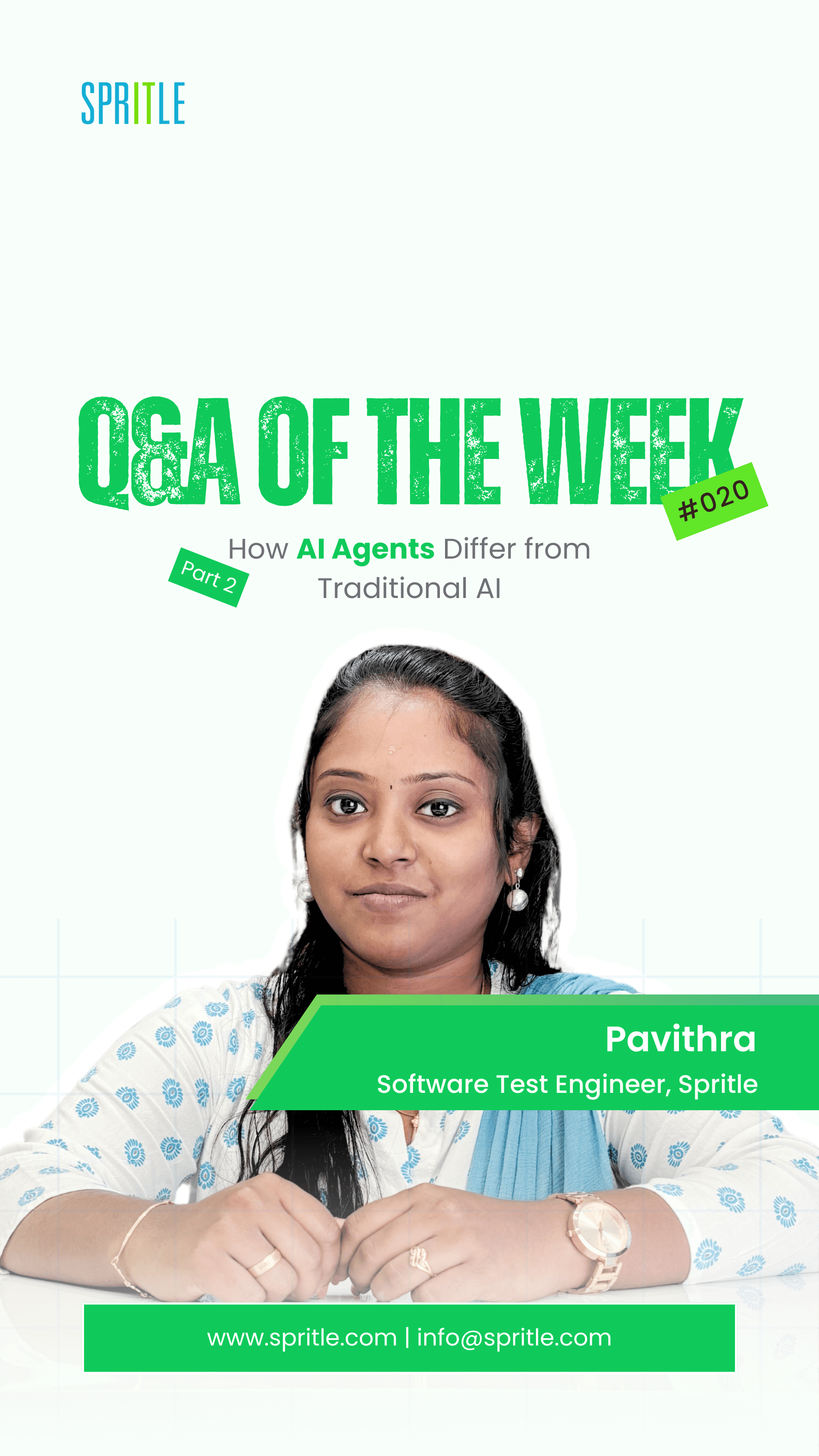This Week’s ‘AI Q&A Spotlight’ 💡
Got AI questions? We’ve got groundbreaking answers! Explore the latest trends, expert insights, and actionable strategies to stay ahead in the AI game. Ready to unlock the future? Let’s dive in!
Question & Answer of the Week #020
SPOTLIGHT ON AI AGENTS: Redefining Intelligence and Autonomy
AI agents are revolutionizing automation by making real-time decisions, adapting to dynamic environments, and minimizing human intervention.
💡 Key Differences from Traditional AI:
✅ Autonomous Decision-Making: AI agents operate with minimal oversight, unlike traditional AI, which relies on predefined rules.
✅ Real-Time Adaptation: They evolve and learn continuously, while traditional AI remains static.
✅ Enhanced Efficiency: AI agents optimize workflows by adjusting strategies based on real-world experiences.
🎙 Expert Insights:
“AI agents are transforming industries by enabling systems to think, learn, and act independently—ushering in a new era of intelligent automation.”
AI agents are shaping the future of AI, driving innovation with smarter, self-improving solutions! 🚀
How AI Agents Outperform Traditional AI: Key Differences Explained-part 1
Speaker : Pavithra -Software test engineer
Question 1:
What makes AI agents different from traditional AI?
AI agents stand apart from traditional AI by their ability to operate autonomously with minimal human input. Unlike traditional AI systems, which rely heavily on human oversight and predefined rules, AI agents adapt and make real-time decisions based on dynamic environments.
Key Differences Between AI Agents and Traditional AI:
✅ Autonomous Decision-Making: AI agents function independently, reducing the need for manual intervention.
✅ Real-Time Adaptation: They continuously learn and adjust their behavior, whereas traditional AI follows fixed instructions.
✅ Flexibility & Intelligence: AI agents handle complex, unpredictable situations by leveraging machine learning models.
✅ Scalability: Unlike rule-based AI, agents can scale efficiently across multiple tasks without constant reprogramming.
By evolving with real-world experiences, AI agents go beyond static, rule-based frameworks, making them powerful tools for automation, problem-solving, and intelligent decision-making.
Question 2:
How do AI agents learn and evolve?
AI agents are designed to learn and evolve through machine learning algorithms and feedback loops, making them more adaptive and intelligent over time. Unlike traditional AI, which operates within fixed parameters and requires manual updates, AI agents refine their models based on real-world experiences, allowing them to handle dynamic and ever-changing environments effectively.
Key Ways AI Agents Learn and Improve:
✅ Machine Learning Integration – AI agents analyze large datasets, recognize patterns, and make data-driven decisions.
✅ Feedback Loops – Continuous input from real-world interactions helps them adjust and optimize responses.
✅ Self-Improvement – Unlike traditional AI, which remains static, AI agents enhance their decision-making skills autonomously.
✅ Real-Time Adaptation – They modify their strategies based on new information, ensuring higher efficiency and accuracy.
By leveraging these mechanisms, AI agents become smarter, more responsive, and capable of tackling complex, unpredictable challenges, driving innovation across industries. 🚀
Something exciting is on the horizon next week—stay tuned to catch all the excitement firsthand!
Live Video Out !… To watch the full video Please Visit our Social Platform to experience.






